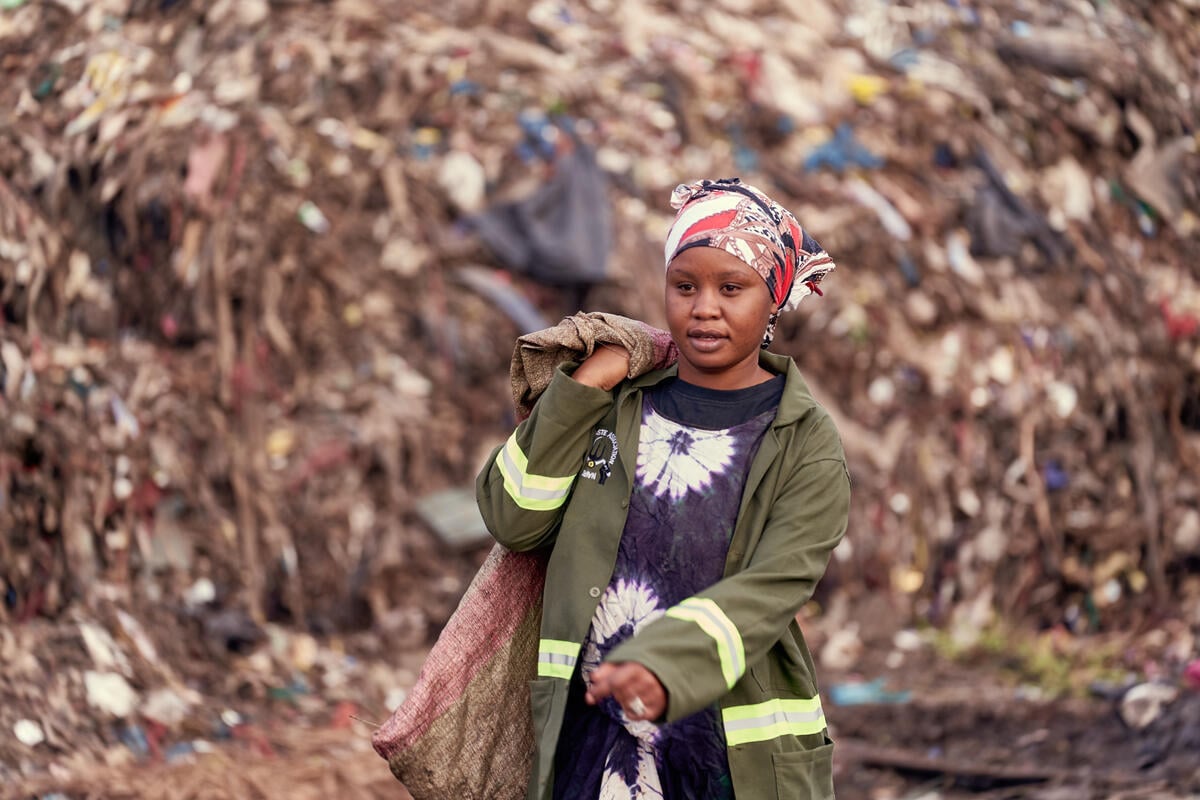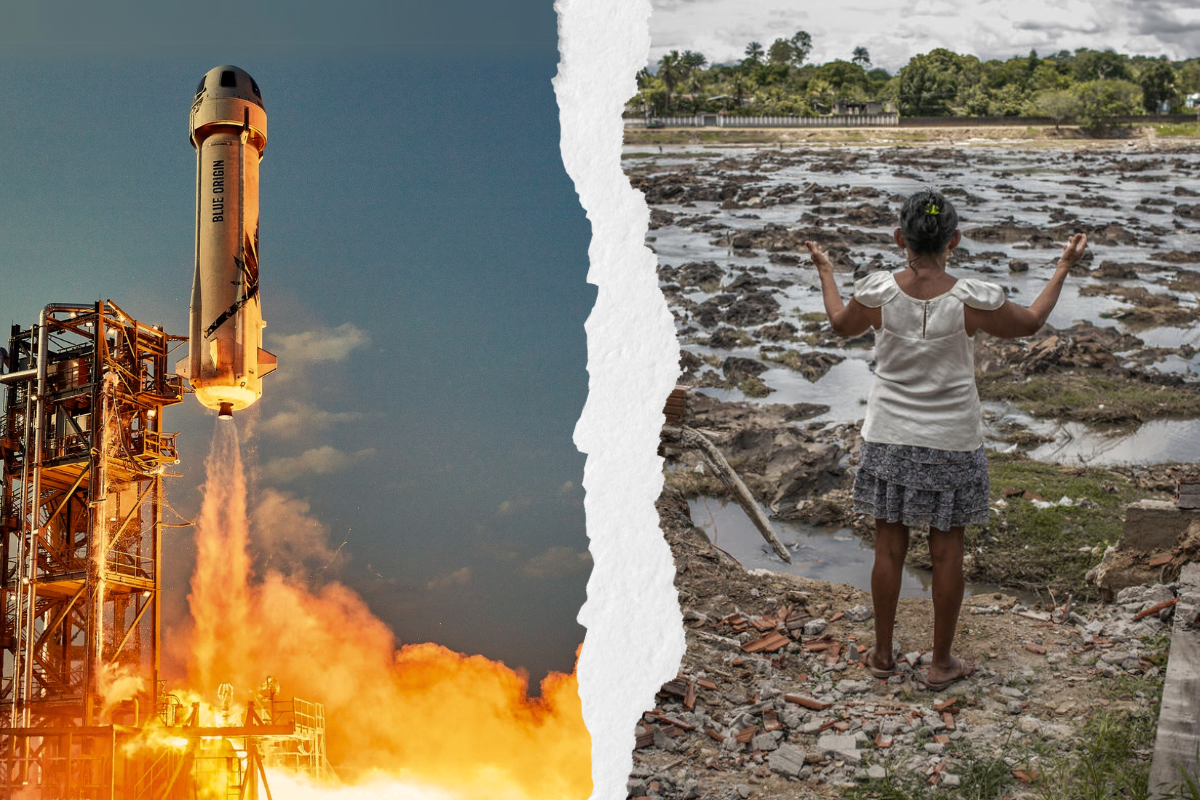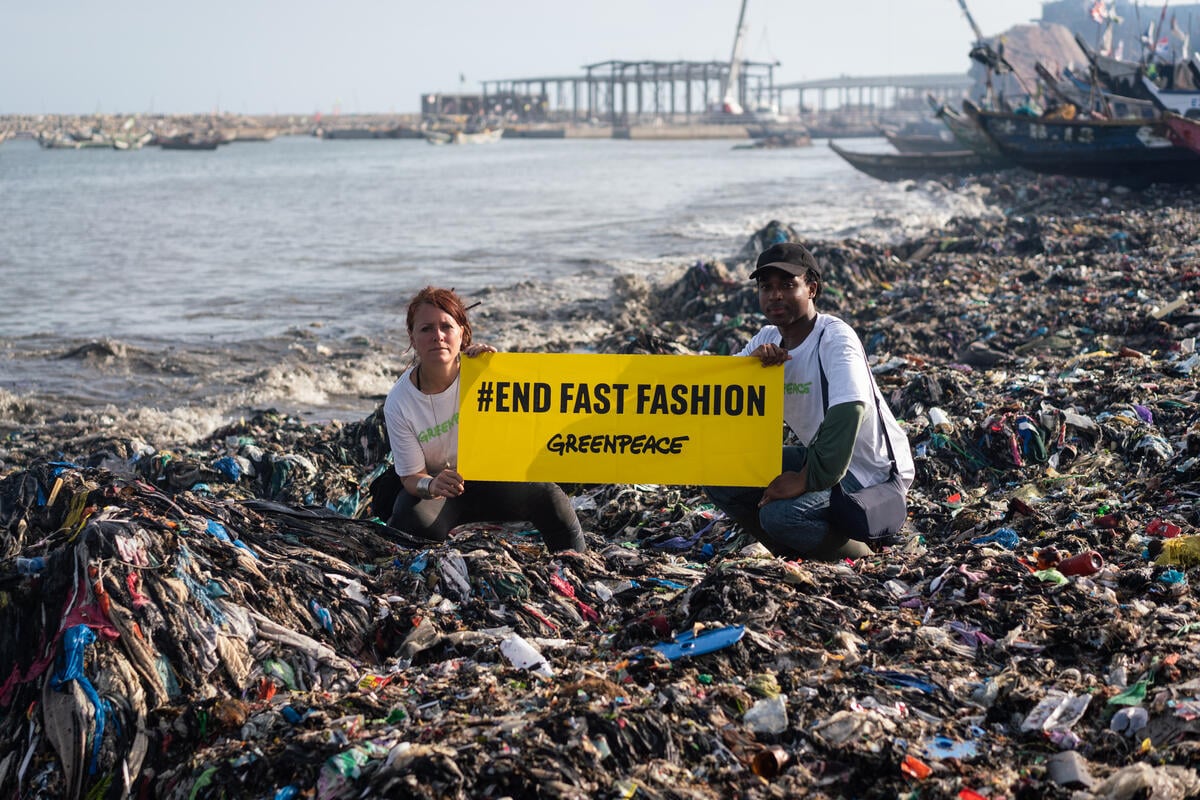This is a story of corporate crime, human rights abuse and governments’ failure to protect people and the environment.
A joint report by Amnesty International and Greenpeace Netherlands.
For the people at the centre of the story – the people of Abidjan in Côte d’Ivoire – it starts with horror and ends in tragedy. It began on 20 August 2006 when they woke up to find that foul-smelling, toxic waste had been dumped in numerous places around their city. Tens of thousands of people suffered from nausea, headaches, breathing difficulties, stinging eyes and burning skin. More than 100,000 people were treated, according to official records, but it is likely that the number affected was higher as records are incomplete. The authorities reported that between 15 and 17 people died. With medical treatment and time, the symptoms abated, but for many the fear remains. Six years on, they still do not know what was in the waste. It had been illegally exported from Europe, illegally brought into Abidjan, and illegally dumped there. Numerous laws – both national and international – had been ignored.
A three-year investigation by Amnesty International and Greenpeace has uncovered the central reason for the tragedy that unfolded in Abidjan: in the absence of effective law enforcement, one company acted to secure corporate profit without regard for the human and environmental costs. That company was Trafigura. Trafigura made the toxic waste on board the Probo Koala. Trafigura knew the waste would be dangerous and require careful treatment and disposal, but it refused to pay for proper disposal when this option was offered in the Netherlands. Trafigura knew – or should have known – that the waste should not be shipped out of Europe and that the company it handed the waste over to was incapable of dealing with it properly. Trafigura knew the waste was to be disposed of in a city dump. And Trafigura gave false or misleading information about the waste to the state authorities and wasteprocessing companies in several countries.
Although Trafigura was convicted in a Dutch court of illegally exporting the waste from the Netherlands, the company was given immunity from prosecution in Côte d’Ivoire. Trafigura claims the dumping and its aftermath were not its fault. The investigation undertaken by Amnesty International and Greenpeace concludes that Trafigura’s claim lacks credibility. The investigation also establishes that many governments contributed to the tragedy by failing to uphold international human rights and environmental law and the law of the sea. They continue to fail to take adequate measures to prevent such corporate crimes in future, to redress the suffering of the victims, or to hold the perpetrators to account. Such failures entrench impunity for corporate crimes. Although Côte d’Ivoire responded quickly to the crisis, the then government gave Trafigura sweeping legal immunity from prosecution in exchange for a financial settlement. The Netherlands – the country in the best position to act to ensure that Trafigura’s waste was dealt with properly – failed to act lawfully and contributed to the violation of the right to health of the people of Abidjan. Trafigura Ltd., a company based in the UK that directed the operations on board the Probo Koala at several critical points, has never been investigated or prosecuted by the UK authorities.
Just as the Probo Koala sailed around the seas of Europe and West Africa with its toxic cargo, Trafigura has sailed around the law, evading international law and exploiting jurisdictional uncertainties.
The nightmare inflicted on the people of Abidjan still haunts many people today. The persistent failures – to hold the company fully to account, to disclose information and to ensure compensation reaches all those who are entitled to it – mean that the toxic waste dumping at Abidjan is not only a crime committed back in 2006 but an ongoing travesty of justice today.
Download The Toxic Truth
View or download the report in French: Une Verite Toxique



